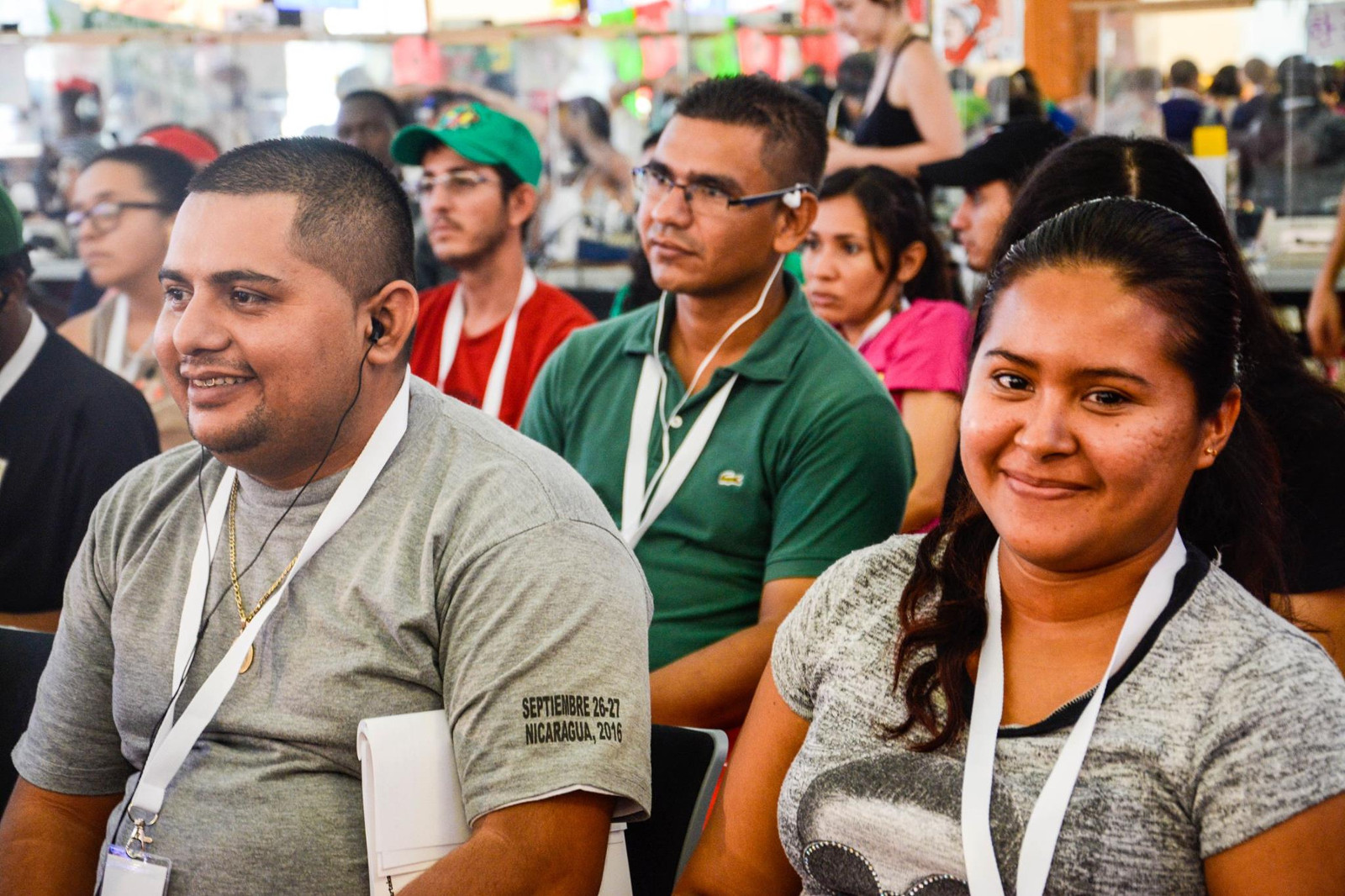As peasants from around the world descend on the Basque Country for the VIIth International Conference of La Via Campesina—the highest decision making space of the world’s largest peasant movement—some of their most important constituents—the youth—have already put forth their political agenda and solutions to some of the most pressing issues they are faced with.
For two days prior to the opening of the conference on July 19, young farmers from 47 countries debated food sovereignty, migrants’ rights, trade, climate justice, and criminalisation of social movements in their own space, the IV International Youth Assembly.
The youth of La Via Campesina are experiencing these challenges firsthand, and as young people are uniquely positioned to react.
Here in Europe, a farm ceases to exist every 3 minutes, and the average age of farmers is 60. In the UK, only 1% of the population is engaged in farming activities, and of that number less than 4% are under the age of 35. A young third generation farmer representing the Landworkers’ Alliance, La Vía Campesina’s UK-based member organization underscored the importance of youth returning to agriculture. “It is critical for us to look at models where peasant agroecology flourishes,” she told her audience, “We can learn from places like Latin America, and you can help us grow our movement”.
In a breakout session on climate justice and migration, the youth identified peasant agroecology as an overarching strategy to confront the twin challenges of climate change and the migrant crisis. “Rural youth lack opportunities in Guatemala, so they risk their lives trying to reach Mexico, the U.S., and Canada—and climate change is compounding this,” said a young peasant organizer representing the Guatemalan women’s organization CONAVIGUA. She explained that her organization’s agroecological strategy was embedded in the Mayan Cosmovision, which pinpoints respect and care for natural resources. “We all have our own cosmovisiones, and agroecology is a way for us make sure they are renewed from generation to generation” the young woman added, “Today as youth, it is our turn.”
Around the world, not only industrial agriculture, but also high-level climate change mitigation projects are threatening natural resources across territories.
“We are seeing Blue Revolution encroach on our fisheries, and it’s much like the Green Revolution that preceded it,” said a young representative of the World Forum of Fisher Peoples (WFFP), an ally of La Via Campesina that was invited to participate in the youth assembly.
“Agroecology also has to do with defending small scale fisheries and thus guarding water as territory,” she added.
By working closely with farmers facing land grabbing, fishers facing ocean grabbing are tightening important solidarity linkages. A major concern for fishers is Blue Carbon, the climate change mitigation program based on REDD+.
In the Indonesian context, REDD+ has impacted some 96,000 ha of land in the Jambi province of Sumatra alone. Peasants and indigenous peoples there who are active in La Via Campesina fight this massive land grab through a combination of land occupations and pressuring the state. As part of that process, leaders within the Indonesian Peasant Union (SPI) spearheaded a global declaration on the ‘Rights of peasants and other people working in rural areas’. Currently, the document is about to enter a fifth round of negotiations at the Human Rights Council in Geneva and is expected to be approved next year. Its key components were shared at the youth assembly and include measures against land grabbing, gender discrimination, absence of agrarian reform and rural development policies, and criminalization of social movements.
Defending the rights of peasants and maintaining healthy ecosystems go hand in hand. Youth are reclaiming the countryside in a wave of re-peasantisation, thus reducing migration to urban areas and abroad.
The systemic and structural problems that undermine such practices are not lost on the youth of La Via Campesina. Food sovereignty and climate justice—with peasant agroecology at the intersection—are political proposals intended to contribute to system change.
“Being a part of this movement is a big opportunity for youth,” a young European farmer reflected in the assembly. “Through our anti-capitalist approach, we create change in ourselves and our movement to ultimately change society.”
La Via Campesina – Communications team

